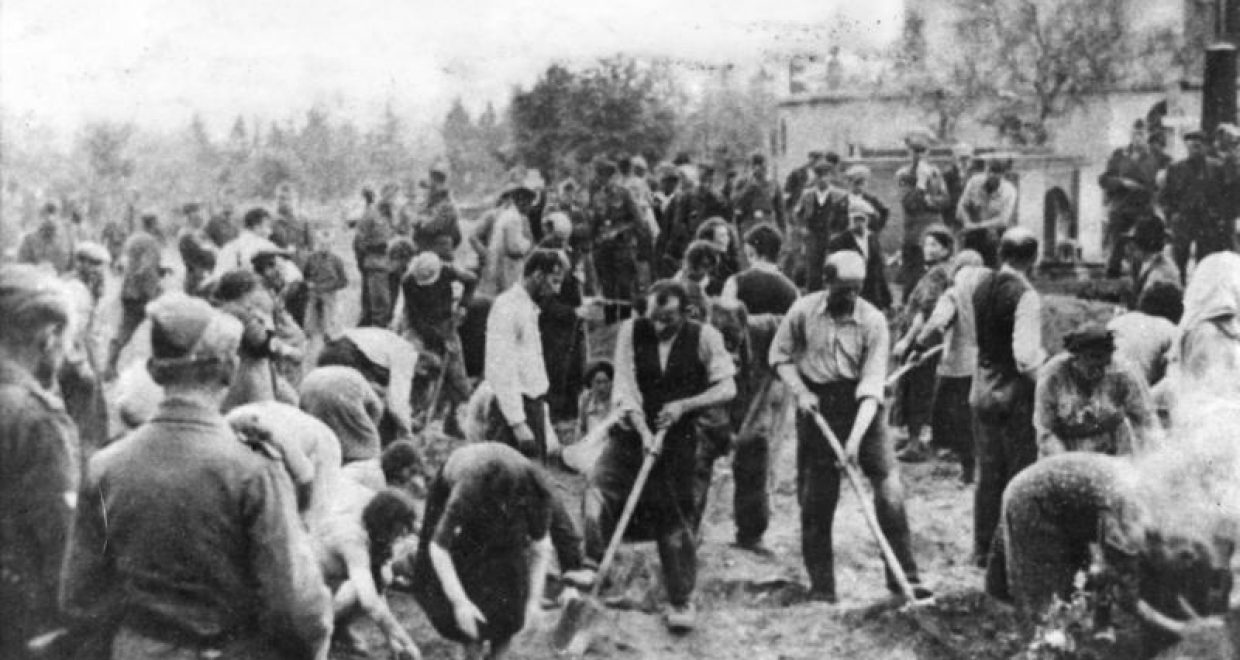Holocaust Scholarship and Politics in the Public Sphere: Reexamining the Causes, Consequences, and Controversy of the Historikerstreit and the Goldhagen Debate
Last year marked the anniversary of two of the most important scholarly debates about modern German history and the Holocaust: the so-called Historikerstreit (“historians’ quarrel”) that erupted thirty years ago in West Germany, as well as the lively debate sparked exactly a decade later by the publication in 1996 of Daniel J. Goldhagen’s Hitler’s Willing Executioners: Ordinary Germans and the Holocaust. To mark the occasion, Central European History has invited a group of seven prominent scholars from four countries to comment on the nature, stakes, and legacies of the two controversies: Richard J. Evans, Timothy D. Snyder, Mary Fulbrook, Wendy Lower, A. Dirk Moses, Jeffrey K. Olick, and Gerrit Dworok. Each brings different strengths, approaches, and areas of expertise to this extremely animated exchange— one that not only provides useful insights into two memorable media discussions about Germany’s fraught past, but also points out suggestive areas for future research.
Despite a good deal of disagreement, some common themes emerge in the forum: the importance of taking into account the scholarly prehistory and political context of the two debates; the role that generational affiliation and personal experience played in the reactions of both direct participants and more casual observers; the appropriateness (or lack thereof) of certain historical comparisons. At least two participants emphasize the need to extend the focus of research on the Holocaust beyond the national framework of “just” Germany and take into consideration developments in Eastern Europe as a whole.
Both debates were highly emotional and created a great deal of bad blood within the historical profession. That passions run high when it comes to the Holocaust is more than understandable, especially when it comes to the “why” and to the issue of uniqueness. Historians might never be able to answer in a “satisfactory” way the first question, which one is almost tempted to consign to philosophers or psychologists. With regard to the question of singularity: what is undeniably unique about the Holocaust is arguably the outrage and emotion that the very act of questioning its uniqueness continues to engender. Why might that be the case? The sheer scale of death and destruction wrought by Germany over the past century has no doubt attracted so much attention in the West because it was death and destruction wrought by one of the world’s most “advanced” and “civilized” nations against other civilized nations and groups. Is that not what most distinguishes German savagery from the barbarous acts committed by other Westerners, namely, those who instead chose to impose their will, not seldom with brute force, on the “racially inferior” living in, say, Africa or Asia? And if that is true, does the preoccupation with German crimes against humanity reflect a subconscious belief that some human lives are somehow more valuable than others? The intention is not to call into question the horror or unique nature of the Holocaust. But to be unique does not necessarily mean to be more horrible.
Access select papers from CEH 50/3 without charge until November 10, 2017
The entire issue (CEH 50/3) can be found here.






